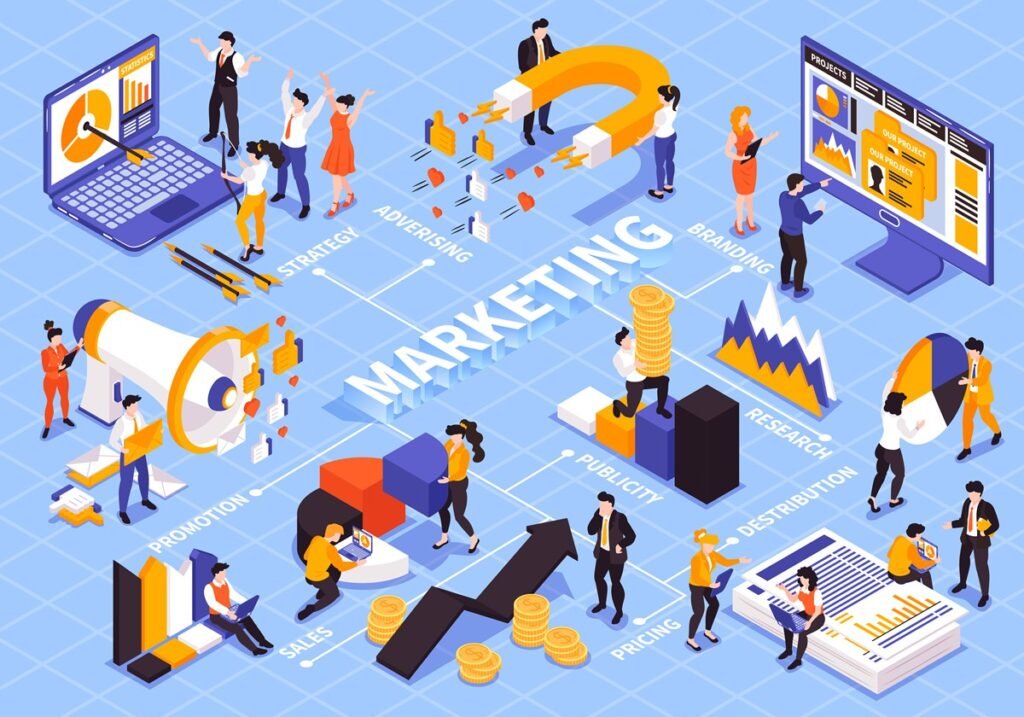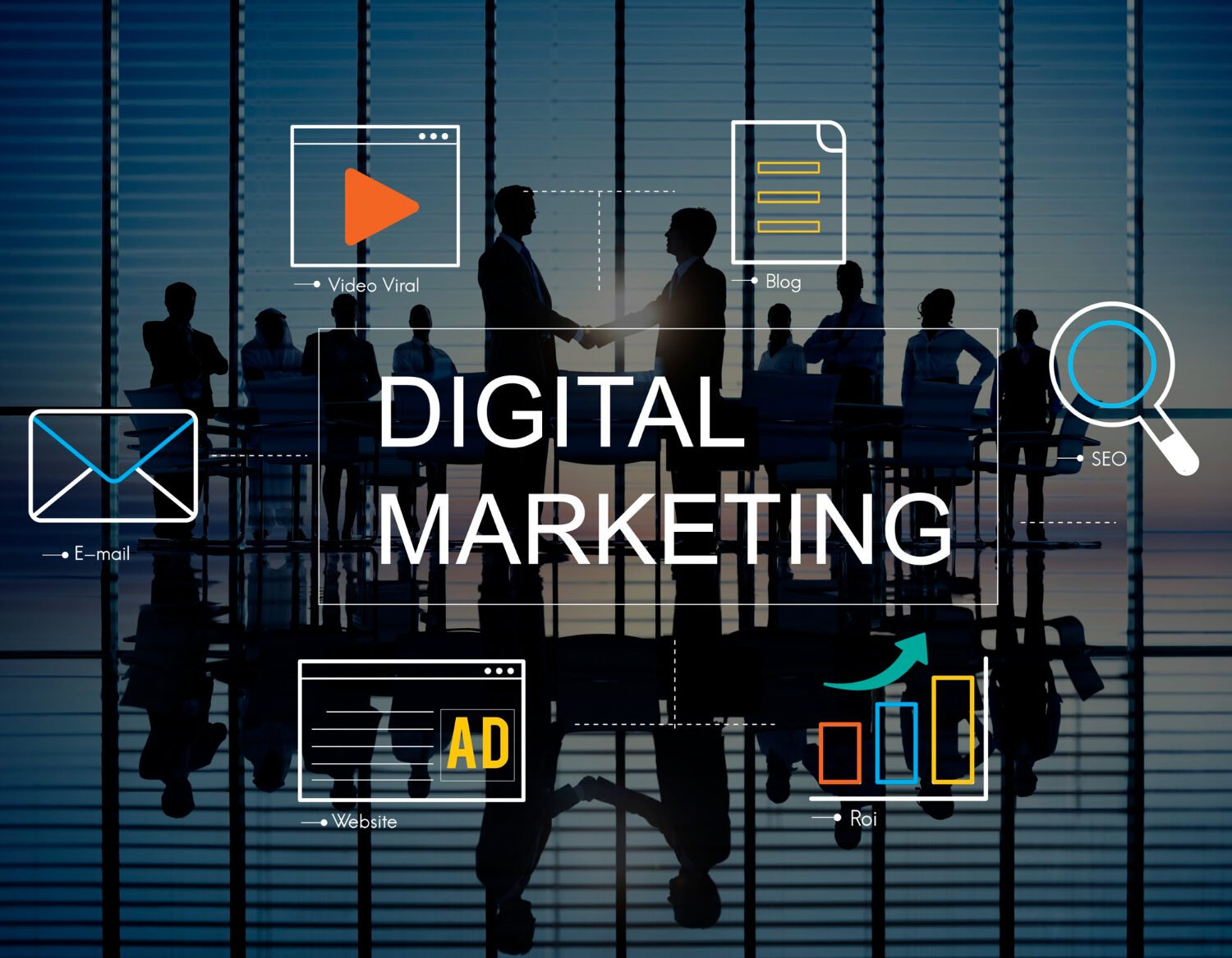What is Digital Marketing? Key Components and Strategies Explained
In today’s business landscape, digital marketing has become an essential strategy for building brand awareness, driving traffic, and increasing revenue. But many entrepreneurs and business owners still ask: What is digital marketing and what does it include?
This article explains the definition of digital marketing, its key components, and how businesses can apply effective strategies to achieve sustainable growth.
What is Digital Marketing?
Digital marketing refers to the use of online channels, platforms, and technologies to promote products, services, and brands. Unlike traditional marketing, digital marketing is data-driven, highly measurable, and allows businesses to reach global audiences in real time.

At its core, digital marketing helps companies connect with their target audience through multiple online touchpoints—from search engines to social media—delivering the right message at the right time.
Key Components of Digital Marketing
- Search Engine Optimization (SEO)
Optimizing websites to rank higher in search engines like Google, driving organic traffic through relevant keywords, technical improvements, and quality content. - Search Engine Marketing (SEM & PPC)
Paid advertising campaigns, such as Google Ads, designed to quickly generate visibility and qualified leads. - Content Marketing
Creating and distributing valuable content (blogs, videos, infographics, case studies) to attract, engage, and convert customers. - Social Media Marketing (SMM)
Leveraging platforms like Facebook, Instagram, LinkedIn, TikTok, and YouTube to build community, boost engagement, and drive brand awareness. - Email Marketing
Personalized and automated email campaigns for lead nurturing, customer retention, and product promotion. - Affiliate Marketing
Partnering with affiliates or influencers to expand reach and generate sales through commission-based collaborations. - Marketing Automation
Using tools and workflows to streamline repetitive tasks, nurture leads, and optimize customer journeys. - Analytics & Data Marketing
Measuring performance through tools like Google Analytics to improve ROI and guide future marketing strategies. - Digital Branding & Online PR
Managing online reputation, brand storytelling, and digital identity to build trust and long-term customer loyalty.
Why Digital Marketing Matters

Digital marketing is not just about running ads or posting on social media—it’s about building a strong digital presence. When done effectively, it helps businesses:
- Reach a global audience with precision targeting
- Reduce marketing costs compared to traditional channels
- Gain measurable insights to improve performance
- Build long-term customer trust and loyalty
FAQ: Digital Marketing
Q1: What is digital marketing in simple words?
A1: Digital marketing is the use of online platforms—such as search engines, social media, email, and websites—to promote products or services and connect with customers.
Q2: What are the main types of digital marketing?
A2: The core types include SEO, SEM, content marketing, social media marketing, email marketing, affiliate marketing, marketing automation, and digital branding.
Q3: Why is digital marketing important for businesses?
A3: It helps businesses reach a wider audience, reduce costs compared to traditional marketing, track performance with analytics, and build stronger customer relationships.
Q4: What is the difference between SEO and SEM?
A4: SEO focuses on organic strategies to improve rankings, while SEM uses paid ads like Google Ads to generate quick visibility and leads.
Q5: What is the best digital marketing strategy?
A5: The best strategy depends on business goals, but a balanced mix of SEO, content marketing, social media, and data-driven campaigns usually delivers the strongest results.
Q6: Can small businesses benefit from digital marketing?
A6: Yes, digital marketing levels the playing field, allowing small businesses to compete with larger companies by targeting niche audiences and building brand visibility online.
Conclusion
So, what is digital marketing? It is the comprehensive practice of using SEO, SEM, content marketing, social media, email, automation, analytics, and branding to grow a business in the digital era.
By combining these strategies, companies can achieve higher visibility, stronger customer engagement, and sustainable ROI. Whether you are a startup or an established enterprise, mastering digital marketing is essential to stay competitive in today’s fast-changing market.

